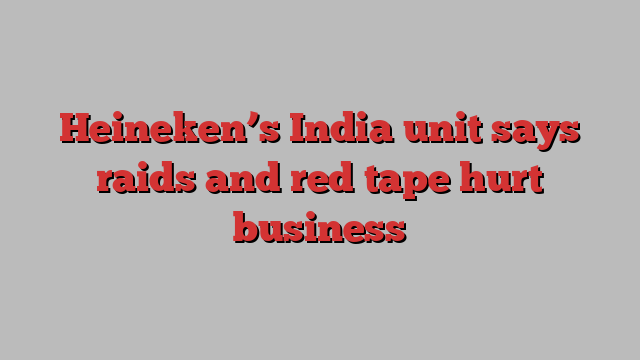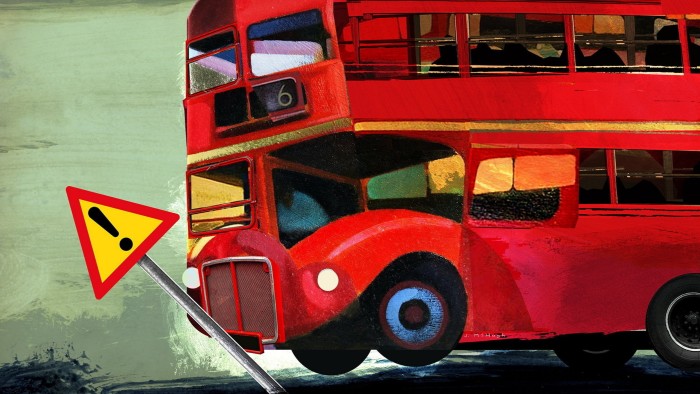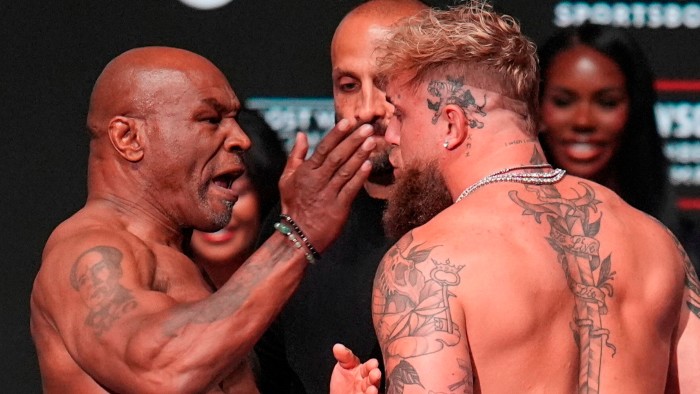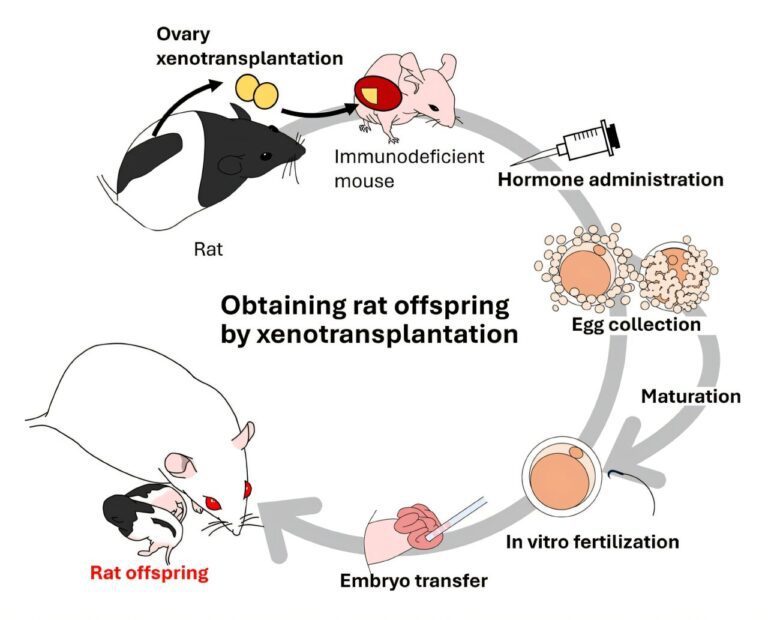
Heineken’s India unit says raids and red tape hurt business
Unlock the Editor’s Digest for free
Roula Khalaf, Editor of the FT, selects her favourite stories in this weekly newsletter.
The head of India’s biggest brewer has said raids by regulators and other “excessive actions” are curbing growth and complicating investment plans in the country.
Vivek Gupta, chief executive of United Breweries — Heineken’s Indian arm and the producer of Kingfisher lager — said shifting regulations across dozens of states and territories were hurting sales in a “priority market” for the Dutch beer giant.
An April seizure of beer and raw materials by excise officials from the company’s brewery close to Mysuru in the southern state of Karnataka for alleged illegal possession was just one of the recent “excessive actions” taken against the sector, he said.
United Breweries had to take legal action to release most of the beer and materials, worth about Rs980mn ($11.8mn). Karnataka’s excise department did not respond to a request for comment.
“Our intent to make big capital investments in India is very high,” said Gupta to the Financial Times at United Breweries’ headquarters in Bengaluru. “But of course everyone wants to really see the regulation becoming easy,” he added. “Predictability is a major issue.”
Alcohol manufacturers in India face a patchwork of pricing and taxation policies in the country of 1.4bn people. Liquor remains outside India’s nationwide goods and services tax system, making it a lucrative source of revenue for state governments.
Alcohol also remains widely frowned upon in India despite rising consumption. Prime Minister Narendra Modi is teetotal and some states, including Bihar and Gujarat, are dry. India’s constitution includes a clause outlining a goal to introduce national prohibition.
The more than a century-old United Breweries holds a dominant position in India, controlling about half the beer market. The company reported 17 per cent year-on-year growth in operation revenue to Rs47.9bn in the quarter to the end of March.
But Gupta said the company still struggled to win approvals to launch new brands nationwide. For example, he said, some of its Heineken brands were consistently available only in the states of Goa and Maharashtra, as well as the city of Mumbai.
United Breweries typically needs to acquire more than two dozen new licences every year for each of its 19 main factories. “The problem is how frequently they get renewed, which is not needed,” said Gupta.
Heineken took majority control of United Breweries in 2021 after it was run by liquor baron Vijay Mallya, a swaggering tycoon once known as the “king of good times”. In 2022, India’s Supreme Court sentenced Mallya, who left India for the UK eight years ago, to four months in prison for disobeying a 2017 court judgment linked to the collapse of Kingfisher Airlines.
Analysts see significant room for beer volume growth in India. Research outfit Euromonitor International estimates that beer contributes to less than 50 per cent of alcohol volumes in India, compared with 80 per cent across the rest of Asia.
Beer drinking in India remains “minuscule”, at around 2 litres annual consumption per capita compared with a global average of 30 litres, according to HDFC Securities.
United Breweries reported volume growth of 10.9 per cent in the first quarter, driven by its premium beers, including Kingfisher Ultra.
However, Gupta argued that sustainable industry expansion over the next decade would require “fair taxation” to make beer more affordable.
Most states calculated tax on overall volumes, rather than alcohol content, affecting beer more than spirits, said Amulya Pandit, senior research consultant at Euromonitor.
“The lack of clear distinction between drinks with low and high alcohol content impacts the affordability of beer, thereby limiting its potential,” he added.
Gupta said some states such as Maharashtra, home to India’s financial hub Mumbai, were “more progressive” and the company was in talks with others to ease regulatory burdens.
“I keep saying to the governments, we have limited money,” Gupta said. “We will have to make choices if the environment is not there.”
His pitch is that United Breweries is “adding value to the country”.
“It is adding employment, it is adding better productivity to the farmers,” said Gupta. “I actually think it is also adding to the social cohesion of the country.”





